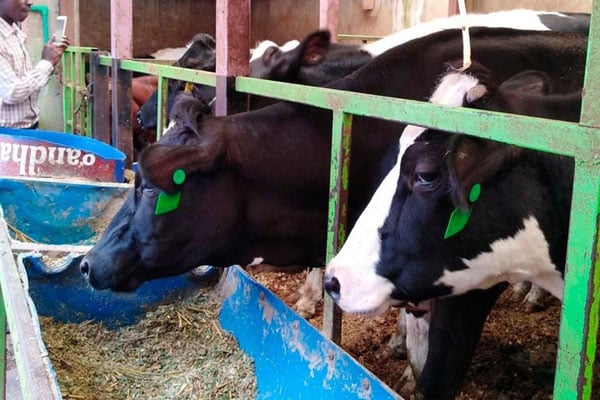Prime
IGAD states urged to improve livestock sector

IGAD Coordinator for Food Systems Resilience Program, Dr Senait Regassa, addresses guests in Entebbe on June 25, 2024. PHOTO/PAUL ADUDE
What you need to know:
- IGAD is implementing the food system resilience program with financial support from the World Bank.
The Coordinator Food Systems Resilience Program at the Intergovernmental Authority on Development (IGAD), Senait Regassa, has said there is need for member states of the bloc to improve on the livestock sector in order to ensure food security for their citizens.
“IGAD is implementing the food system resilience program with financial support from the World Bank aimed at reducing rampant food insecurity in the region,” Regassa remarked at the opening of the regional consultative meeting to identify and prioritise key areas of interventions in food systems resilience in the livestock sector in Entebbe on Tuesday.
She added: “As we all know, climate change poses a great risk to our region and because of that, we have a very high level of food insecurity. The purpose of this program is to address that challenge in a holistic and systematic approach.”
The IGAD Program Manager for Sustainable Development, Eshete Dejen said the body’s Agriculture and Environment Division will lead the efforts of the establishment in building resilience and sustainable development.
“Livestock plays a vital role in the IGAD region. It contributes significantly to the GDP of IGAD member states. The sector supports millions of people, particularly in arid and semi-arid areas by providing income, food, and employment, especially for pastoralist communities. Livestock and livestock products are significant export commodities for IGAD countries, contributing to foreign exchange earnings,” he explained.
Dejen, who represented the bloc’s Director of Agriculture and Environment Division (Daher Elmi), said IGAD aligns with Agenda 2063 of the African Union which identifies agricultural development as a high priority.
William Ssendaula, a senior veterinary officer at Uganda’s ministry of agriculture noted that there is need to address the common challenges shared as a region in a holistic way.
“Uganda has 15million cattle, 17.4million goats, 5 million sheep, 7.1million pigs and over 82million poultry. Even with the high population of livestock, Uganda still faces challenges and most of them are barriers to trade within and on international markets,” he emphasized.
According to him, some of the challenges facing Uganda and IGAD states include transboundary animal diseases like FMD, brucellosis and conditions like aflatoxins.
“However, the government of Uganda has paid more efforts in promoting agro-industrialization by supporting farmers with vaccines, equipment for processing livestock and livestock products as a way to improve on market access,” he told guests.
Sylvia Henga, the IGAD Policy and Food Security Officer, expressed optimism that the new program will improve food security and build economic empowerment of the society including the minority groups.




